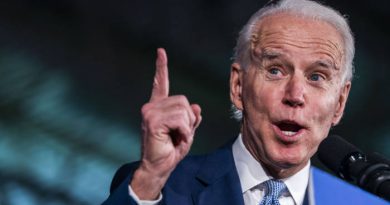The rise of ‘Herd Mentality’ and the loss of reasoning
by Khaled Hamoud Alshareef
If everyone is thinking alike, then somebody isn’t thinking
Virtual Collective Consciousness (VCC) is a term rebooted and promoted by two behavioral scientists, Yousri Marzouki and Olivier Oullier in their 2012 Huffington Post article titled: “Revolutionizing Revolutions: Virtual Collective Consciousness and the Arab Spring”.
George S Patton said, “If everyone is thinking alike, then somebody isn’t thinking”.
Unfortunately today critical thinking is frowned upon, because of the rise of the collective mind and cattle mentality that polarized opinions and deeply creating a shift on political the spectrum.
Herd mentality, mob mentality and pack mentality, also lesser known as gang mentality is on the rise. Thanks to the political, cultural and economic polarization through unchecked political movements and their divisive approach, language, and engagement methods.
Masses can be influenced by their peers to adopt certain behaviors, political views, violent behaviors on a largely emotional, rather than rational basis. When individuals are affected by mob mentality, they may make different decisions than they would have individually.
Gustave Le Bon said, “The masses have never thirsted after truth. Whoever can supply them with illusions is easily their master; whoever attempts to destroy their illusions is always their victim”.
Le Bon claims that there are several characteristics of crowd psychology: “impulsiveness, irritability, incapacity to reason, the absence of judgement of the critical spirit, the exaggeration of sentiments, and others”.
Le Bon claimed that, “An individual immersed for some length of time in a crowd soon finds himself either in consequence of magnetic influence given out by the crowd or from some other cause of which we are ignorant in a special state, which much resembles the state of fascination in which the hypnotized individual finds himself in the hands of the hypnotizer.”
The political and religious bodies capitalize on the collective consciousness of the” tribe loyalty” to the political affiliation and the religious identity.
Newspapers, radio, television, and the Internet including Whatsapp, Facebook groups and blogs are gaining more and more power due to the ease of access to information aligned with one’s political affiliation therefore maintaining a connection to the pack and affirming attitudes and opinions to be established and/or treated as facts, resulting in a sense of entitlement derived from the sense of righteousness and constantly demonizing the opposition which eventually created a rift of hate and dehumanizing the opposition.
The mass media can reinforce latent attitudes and “activate” them, prompting people to take action based on the mass media narrative. Example: before an election, voters who earlier had only a mild preference for one party or candidate may be inspired by media coverage not only to take the trouble to vote but perhaps also to contribute money or to help a party organization in some other way. Now add to that, unions, celebrities, social media and peers who push the same narrative 24/7, questioning the policies or party candidates is frowned upon.
In areas where the mass media are thinly spread, as in developing countries or in countries where the media are strictly controlled, social media can sometimes perform the same functions as the press and broadcasting, though on a more sinister scale.
Example: Bot-like Turkish accounts complement military operation in Syria and Libya, flooding the media with pro-Turkish government propaganda, burying reports that aim to expose the war crimes of the pro-Turkish militias in those countries.
21st century academic fields such as marketing and behavioral finance attempt to identify and predict the rational and irrational behavior of investors. (See the work of Daniel Kahneman, Robert Shiller, Vernon L. Smith, and Amos Tversky)
Driven by emotional reactions such as greed and fear, investors can be seen to join in frantic purchasing and sales of stocks, creating bubbles and crashes.
As a result, herd behavior is closely studied by behavioral finance experts in order to help predict future economic crises, similarly political and media experts use the same methods to control the thought, narrative even outrage. Now you know, so start questioning.
Khaled Homoud Alshareef holds PhD in Business and he earned Masters in Philosophy. He often writes about Islamism, Islamist factions and modern Terrorism. He tweets under @0khalodi0.


